Whether you’re a doctor looking for new patients or a company selling healthcare equipment & products, one thing that you all need is leads.
Let’s face it:
When there’s no new business coming in, how do you feel? Most probably stressed out.
AND…
To be fair, finding leads in the healthcare space isn’t an easy feat, either. Busy doctors or CEOs of hospitals aren’t likely going to answer a sales call.
So, you need to get creative.
This article will outline some healthcare lead-generation strategies to help you find more qualified leads. Some of these strategies are “out of the box”, while others are more traditional.
(If you would like a more tailored strategy, hop on a free 15-minute strategy session with the founder of Salesbread, Jack Reamer.)
1. Use various databases for finding qualified healthcare leads
For qualified healthcare leads, we use various databases to build lists of prospects.
At Salesbread, we like to use The American Hospital Association database.
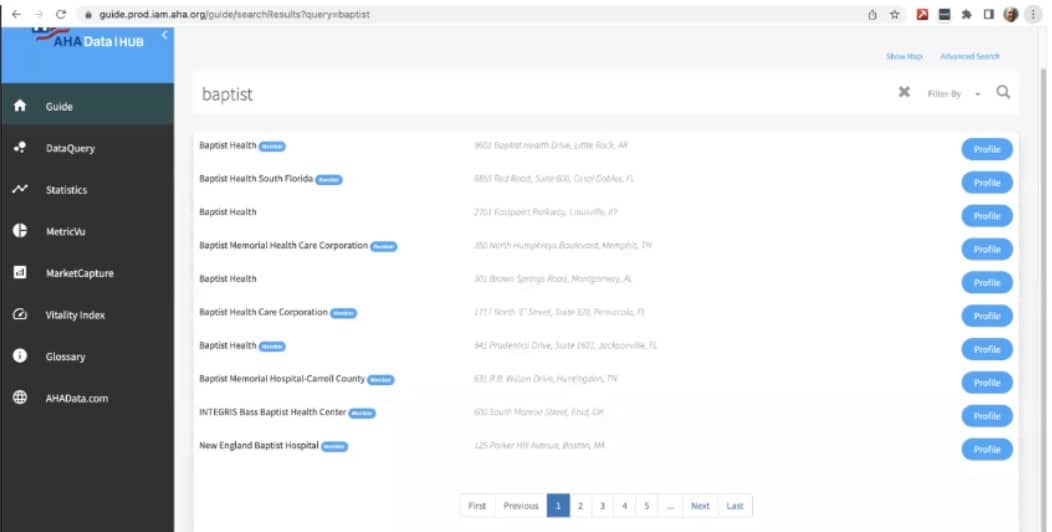
If you’re going after hospitals, this is one of the best databases to use.
We love it because you can get really granular with your list.
For example, you can look up the number of beds the hospital has, patients per health care system, types of specialties, and the number of cardiac surgeons.
You can access data from over 6200 hospitals and 400 healthcare systems.
But don’t limit yourself to just one database.
You could even scrape a site called Doctify.

This database is really helpful because you’re most likely going to be reaching out to a specific kind of medical practice.
You will allow you to be able to zero in on a particular specialty.
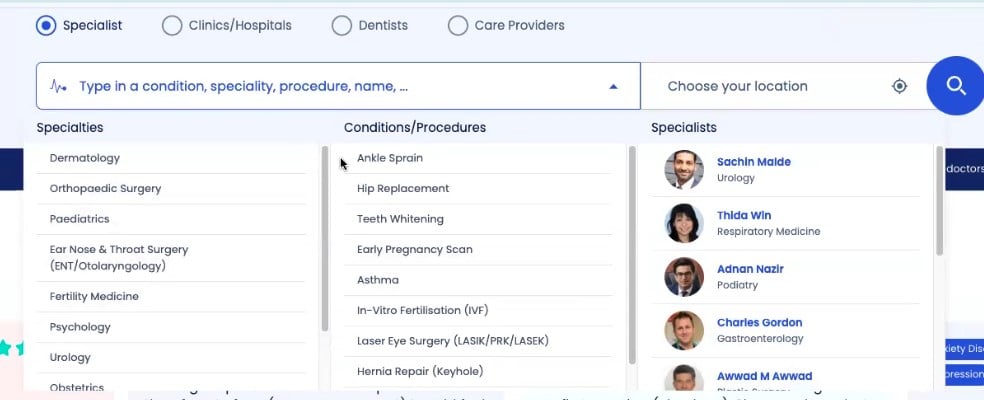
It’s far more accurate. Forget trying to build a list on LinkedIn Sales Navigator for medical leads. You need to be going to these kinds of directories so that you can find really granular information.
Just imagine going onto Linekdin and trying to find doctors that specialize in accurate pediatric disorders; It’s just not possible. You can find this kind of information on Doctify and the AHA.
It would also be a good idea to have a web scraper, like Data Miner, to help you find the right practices or hospitals to target.
You can even use YELP to find medical leads. For example, if you type in concierge medicine, you will get a list of specific doctors who offer these services.
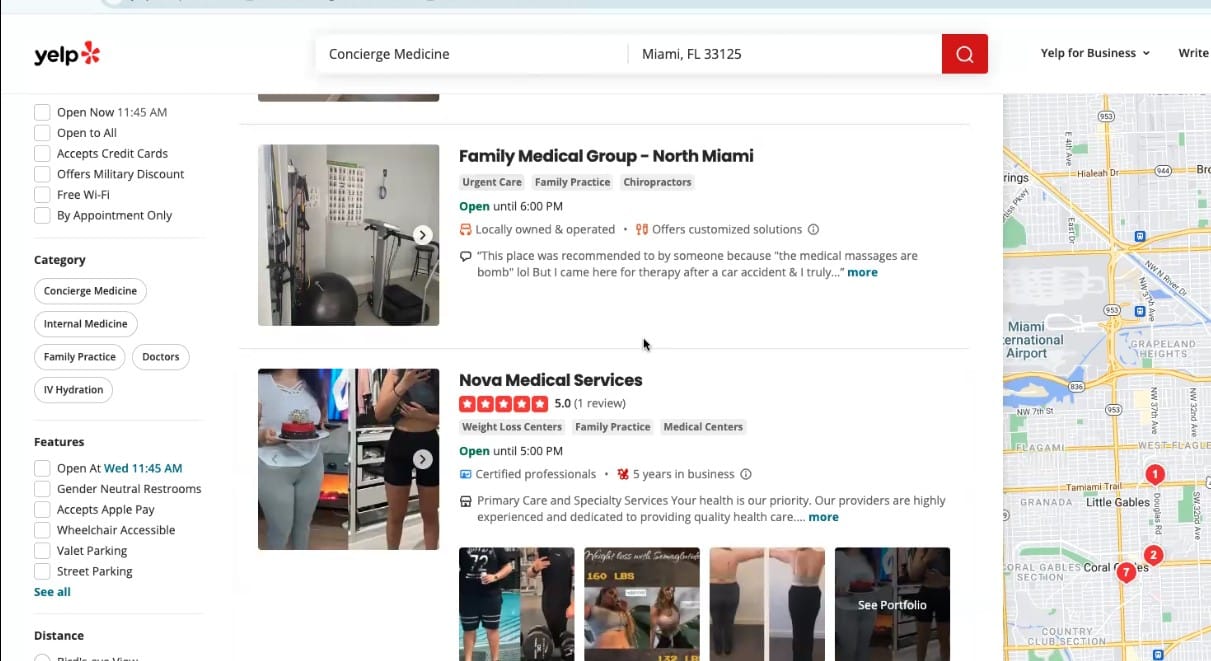
You can then use a web scraper to go to these practices’ websites to ensure that on their homepage, the keyword “concierge medicine” actually exists.
Perhaps you also want to avoid practices that take Medicare, in which case you can scrape the websites and ensure that the keyword “Medicare” does not exist.
So, by using these databases along with web scrapers, you can build really accurate lists of prospects who actually need what you’re selling. The more targeted your lists are, the better.
Then, once you have an ultra-refined prospect list, you can use LinkedIn to reach out to the right decision makers at these practices/hospitals.

2. Use LinkedIn to reach out to medical leads
If you are selling to large healthcare systems, we found that these medical directors and decision makers are very active on LinkedIn.
We have done outreach campaigns for general practitioners and those practicing family medicine in the UK and the US.
For example, we had a client who was selling a software platform to fill prescription medication, and we used LinkedIn to reach out to the right decision-makers at hospitals, clinics, and GP offices.
An important thing to remember, though, is to keep these messages short and to the benefit of what you can offer. Try to think about how you can make their lives better.
What can you do to make things easier for them? Remember, doctors are also people, too, so the sleazy sales pitches aren’t going to work.
Don’t forget personalization, either.
For example, if a doctor won an award or supported a specific charity, compliment them on it in your message.
Perhaps something they did really impressed you; be specific about it in your messages.
Sometimes, just that little bit of personalization helps your message stand out and gets your foot in the door for further conversations.
Here’s an example:
“Michaela, I know of your work at {{name of institution or practice}}, through a few of our mutual healthcare connections here. Mind if we connect?”
And follow up….
“Michaela, {{custom intro.}} Saw you’re in charge of marketing. Do you also handle promotional products {{for brand visibility or onboarding gifts}} at {{name of institution}} Or am I way off?
{{Your name}}
P.S. {Explain end benefit and why they would want to engage with you.}”
Another option is to also reach out to those who work in admin at the doctor’s offices. Don’t be afraid to do this, especially if you’re targeting smaller clinics.
Why?
Because often, the admin employees are gatekeepers who can help you secure meetings with decision-makers.
If you’re interested in reading one of our case studies on how we helped Ultracope sell to higher education institutions using Linkedin, go here.
We ended up receiving a 43.7% connection rate and a 30% positive reply rate (where potential clients actually agreed to booked sales appointments.
3. Don’t try cold calling for medical sales lead generation
Cold calling just doesn’t work for medical professionals.
They are busy people, so cold calling isn’t the best option. You don’t want to waste valuable time and resources.
The healthcare sector is not like realtors who are always on their phones.
Some industries are phone-heavy, and cold calling can work in these fields, but when it comes to reaching out to doctors, they should use LinkedIn outreach or cold email to book sales appointments.
We always suggest using the channel where your target audience mostly spends their time.
4. Use digital marketing to attract decision makers
SEO
Search engine optimization is the process of optimizing your website or blog posts with specific keywords that searchers might type into Google when looking for your product/service.
The internet is one of the best places for potential customers to find information. And many healthcare industry marketers focus on Google Ads to reach this traffic, with hospitals allocating 85% of their budget to paid digital advertising.
But remember, paid ads can be pricey. This is why many healthcare lead generation strategies involve SEO. (Hiring an agency can be pricey, but hiring a freelance SEO expert can be more cost-effective.)
For example, if you’re selling personalized stethoscopes to doctors, students, and vets, you could create a blog post or landing page around the keyword “personalized stethoscopes”.

If you do a great job of optimization, you stand the chance of your page or article ranking on page 1 of Google.
Grow & Convert shares excellent strategies for SEO and content marketing. You can read their case study
on how they helped a concussion clinic find more leads through SEO and content marketing.
Social media marketing
Social media marketing can be a great tool for healthcare lead generation when used the right way on platforms like Instagram, TikTok, X (formerly Twitter), and Facebook.
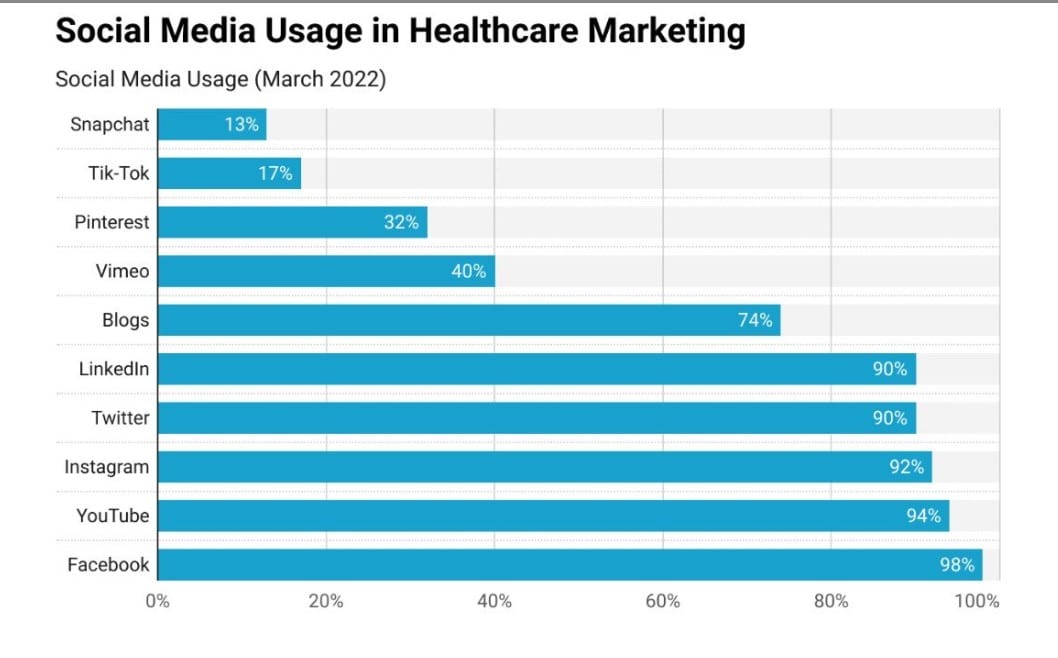
On Instagram, for example, creating visually engaging content such as health tips, patient testimonials, and behind-the-scenes insights can build trust in your ideal audience and attract potential leads.

Utilizing features like Stories, Reels, and Instagram Ads with clear calls to action can help drive traffic to your website or landing pages.
TikTok offers a creative platform to produce short, engaging videos, including educational content or wellness challenges, that can go viral and capture the attention of younger audiences.
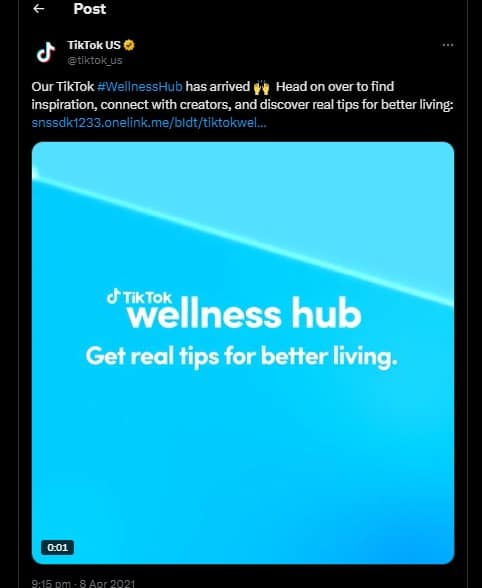
X is ideal for sharing expert opinions, medical updates, and news in real time while engaging in conversations and using targeted hashtags to reach broader audiences.
Facebook can also be used because it offers a wide demographic reach and allows for targeted ad campaigns based on the interests and behaviors of your ideal clients.
You can also use it to build community groups and create long-form content that can nurture potential leads.
Each platform has its own unique features, and you can use them to contribute to a well-rounded healthcare marketing strategy that boosts visibility and generates high-quality leads.
PPC
Pay-per-click (PPC) advertising can also help you generate healthcare leads, as it allows healthcare providers to target specific patient needs and demographics with precision.
You could do the same if you’re selling specific equipment or services to healthcare institutions.
Platforms like Google Ads enable healthcare marketers to bid on relevant keywords, such as “primary care near me” or “urgent care services.”
This ensures that your ads appear at the top of search results when potential patients or clients are actively seeking medical care.
This targeted approach can drive traffic to a website or landing page, where users can book appointments or inquire about your services.
PPC campaigns can also be customized based on location, time of day, and user behavior, allowing for more refined targeting to ensure ads reach the most relevant audience.
Be sure to include conversion copywriting, share your most compelling offers, and have strong CTAs.
PPC can drive more qualified healthcare leads to your site.
Just a word of caution: PPC can be quite expensive.
When it comes to the actual media ad spend, on average, PPC cost per click (CPC) ranges from $2 to $5. As you can imagine, having a couple of thousands of clicks per month can raise costs quite drastically.
Be sure to set a budget and monitor your PPC campaigns for 3 or so months. If you notice no quality leads coming from PPC, rather try some of the other options in this article.
5. Have a great website that’s optimized for mobile
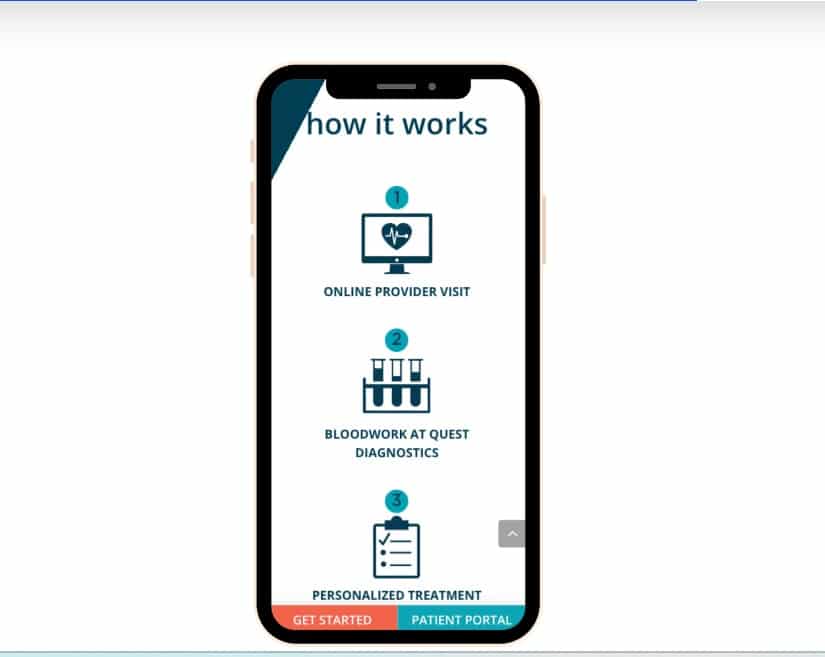
Having a great website optimized for mobile can make a huge difference when it comes to generating more leads in healthcare.
Think about it—most people are searching for healthcare services, or doctors and hospitals might search for your service on their phones.
If your website is easy to navigate, loads quickly, and has clear calls to action like “Book an Appointment” or “Contact Us,” it makes the process easy for potential leads to contact you and see what you have to offer.
A mobile-friendly site not only helps you show up better in search results but also ensures that visitors don’t get frustrated and leave before taking the next step.
Plus, when the site looks professional and is packed with helpful information, it builds trust and encourages people to choose your services over competitors.
6. Create Online Patient And Physician Referral Programs
Creating effective online patient and physician referral programs in healthcare requires a well-thought-out strategy that builds trust, offers incentives, and simplifies the referral process.
Try to do the following if you are thinking about using this form of lead generation.
1. Develop a user-friendly referral portal:
Create an easy-to-use online platform where both patients and physicians can quickly refer others. The portal should allow for tracking referrals, sending follow-ups, and managing rewards or incentives.
2. Offer incentives:
For patients, offer rewards such as discounts on services, wellness packages, or gift cards for successful referrals. For physicians, consider professional incentives like networking opportunities, continuing education credits, or financial rewards for referring patients to your practice.
3. Use digital communication:
Use email marketing, social media, and SMS campaigns to raise awareness of the referral program. You can also provide easy-to-share links or codes so that patients and doctors can refer others with a simple click.
4. Promote trust and transparency:
Build trust by clearly explaining how the referral program works, including eligibility criteria, what rewards are available, and how patients’ privacy will be protected.
5. Monitor performance:
It’s important to track the success of your referral program by measuring referral sources, conversion rates, and patient satisfaction.
You can then use this data to make improvements, such as adjusting incentives or refining your messaging, to ensure the program remains effective over time.
7. Have an excellent online reputation
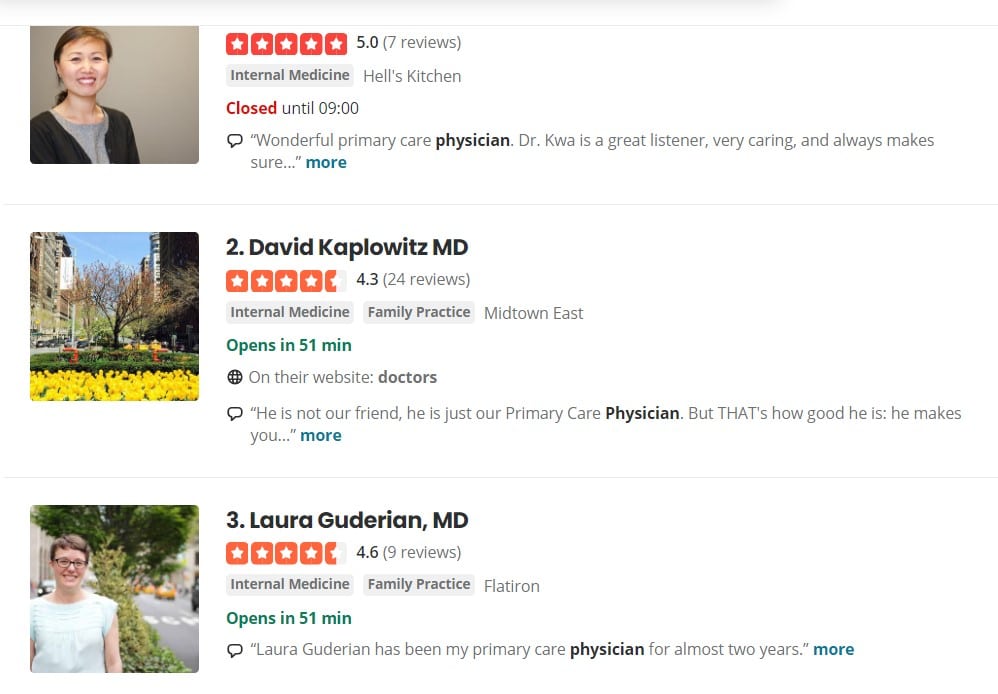
When individuals search for a hospital or a doctor, they often use Google.
For example, if they are looking for psychologists in Florida, a patient will (most probably) first read online reviews about the psychologist to see if they might be a good fit.
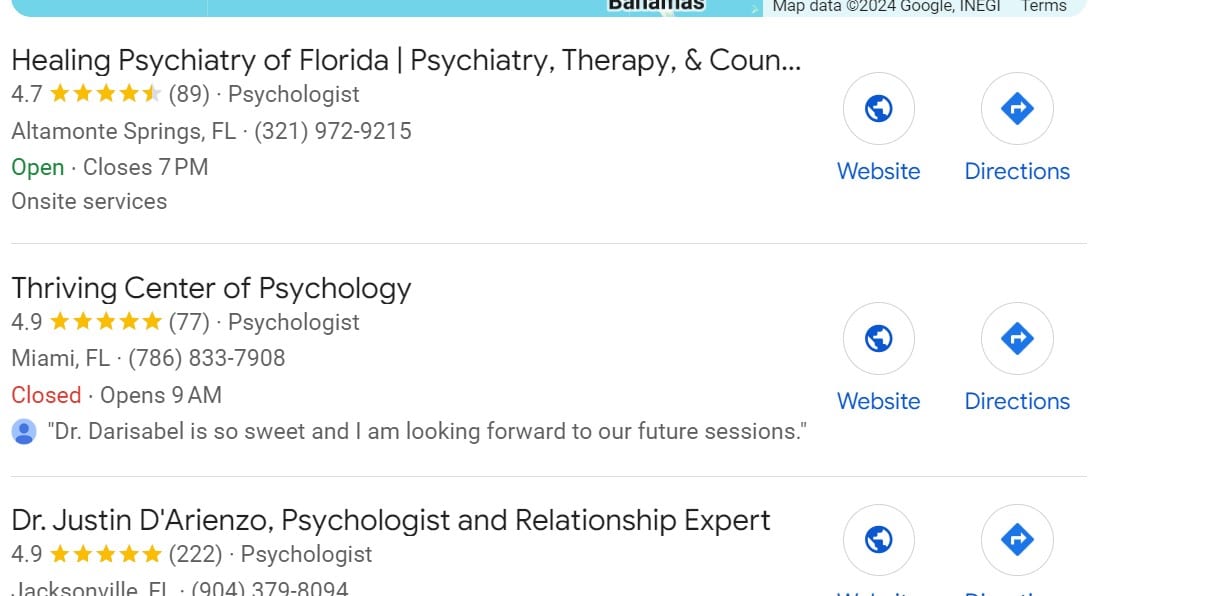
If you don’t have great reviews, the chances of people wanting to learn more about your services will be less.
Be sure to have great reviews, and ask happy clients if they wouldn’t mind leaving you a review.
If you get any bad ratings, be sure to respond promptly online.
8. Respond to queries quickly for more sales appointments
There’s probably nothing more frustrating than needing an appointment with a healthcare provider or having a question, and months go by before you get a response.
Quick story…
A while back, I was looking for a homeopath in our area. I found one with great reviews and sent her a message on her business profile on Facebook with some questions about pricing and her process.
She replied 3 months later. (Much to my dismay.)
Did I send her a message back?
Nope. I had already found a different homeopath.
Moral of the story.
If you want more leads, just respond to queries promptly.
Even if you don’t do it yourself, hire someone to help. If questions are answered promptly, it helps the client realize that you actually do care about them.
The same goes for products/ services you sell to healthcare providers. If a doctor or a CEO sends you an email, reply ASAP.
They will just go to the next best provider if you don’t.
9. Share helpful video content
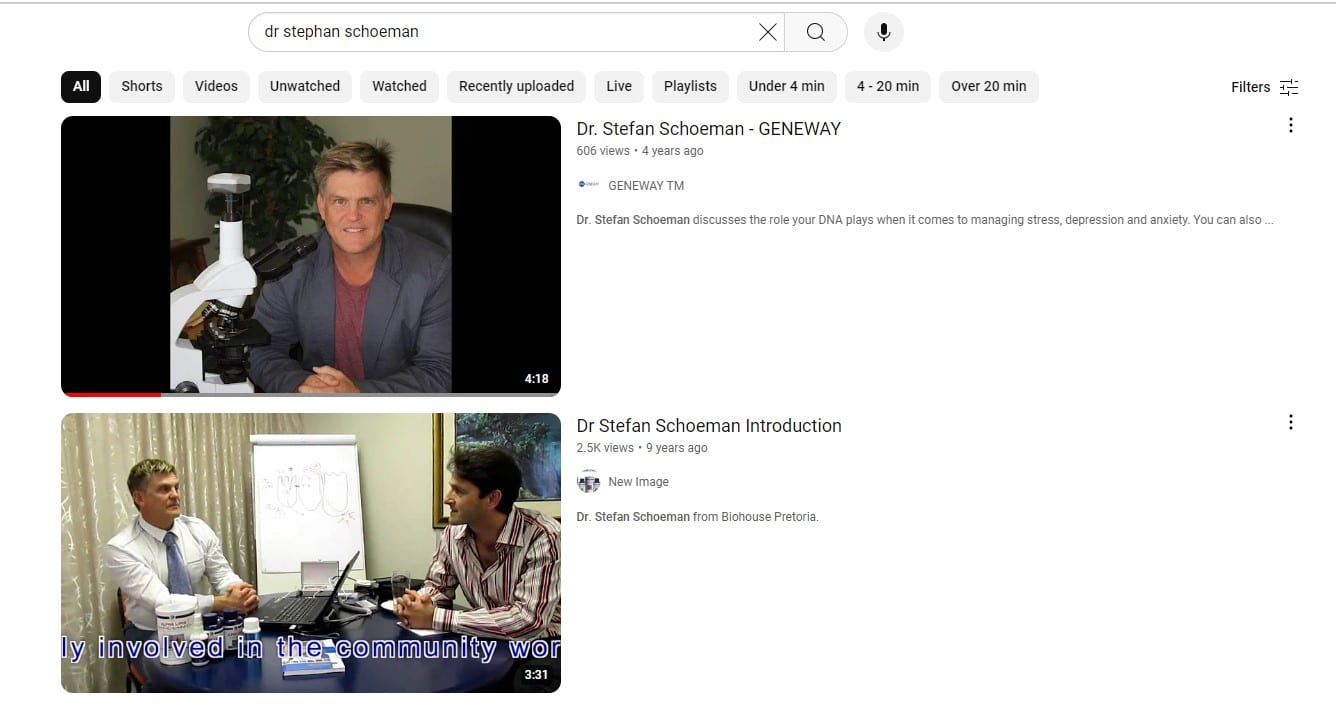
Creating helpful and informative YouTube videos is also great for medical lead generation.
You could send these links to clients on your email lists or just build a following.
Ensure your content is engaging and have a CTA either during your video or in the comments section. It could be as simple as adding your email address or contact number:

10. Hire a healthcare lead generation service
Lastly, if you don’t have the time or experience to generate healthcare leads yourself, why not hire a lead generation agency?
They can help you determine who to target and which strategies would work best.
Below are some of the best healthcare lead generation companies to consider working with.
Best healthcare lead generation companies to consider
1. Salesbread – For personalized LinkedIn lead generation and outreach
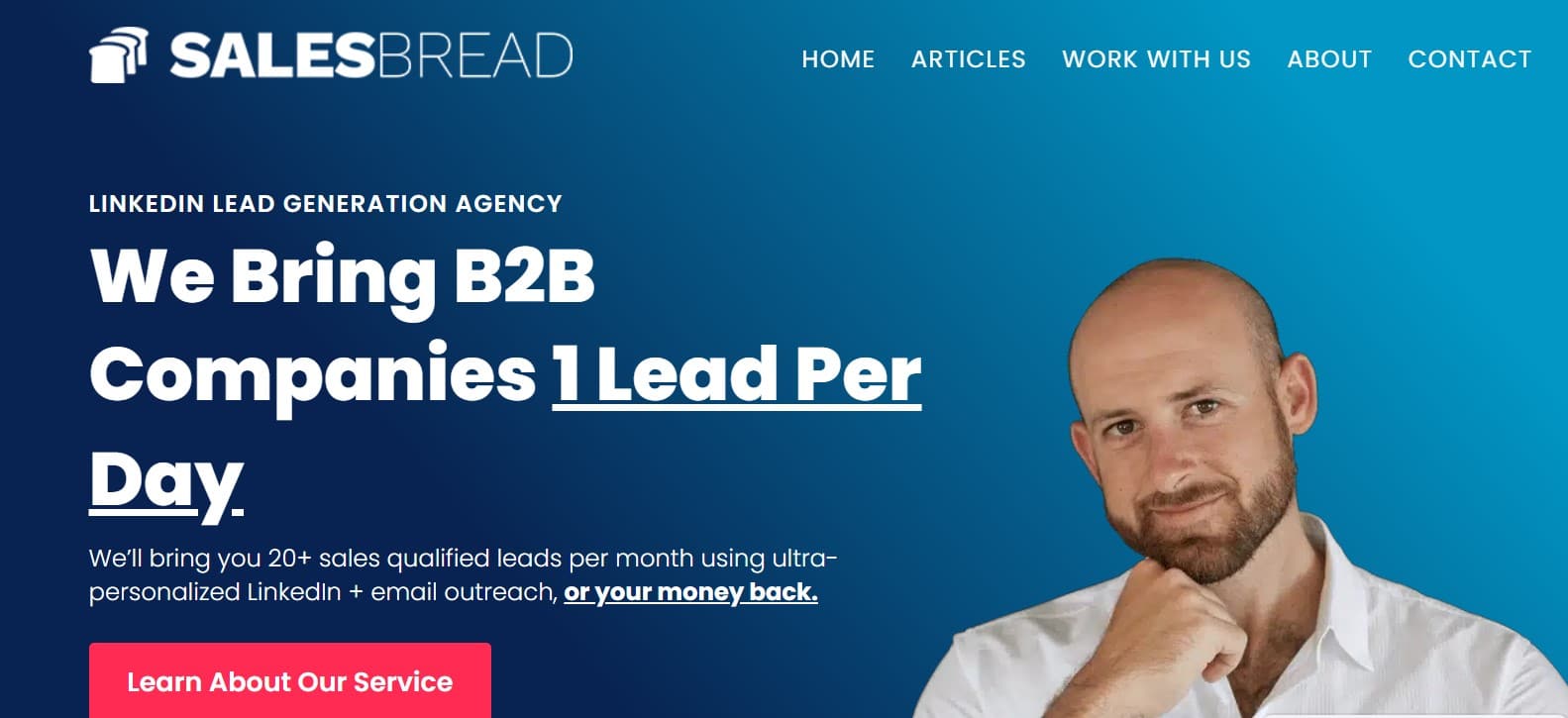
If you know that you have active buyers on Linkedin and would like more qualified b2b sales and a guaranteed 1 per day, you might want to hop on a free 15-minute strategy session with Salesbread.
When partnering up with our company, you can expect:
-
To work along with the founder
-
Have super refined prospecting lists built for you based on your current buyers’ data…
-
Ultra-personalized messages sent to your ideal prospects that are written by a human and not AI-powered. (Note: These messages are based on in-depth research on each and every prospect.)
If this resonates with you, then Salesbread could be the right agency for your business.
Most of the firms that earned our top 10 list are quite larger than our agency;
This means that you would be handed off to an account manager who hopefully has enough industry experience AND understands what makes your buyers tick to make your campaign work.
Since 2014, Salesbread has driven sales-qualified leads to companies that want the best strategist on their account.
Have a look at our cold email outreach podcast with 350+ on lead generation strategy, copywriting, and sales tips.
We are a boutique lead generation agency, and our clients know that they can expect 1 qualified sales lead per day. With over a decade of experience, we know what’s working in the world of outbound sales right now.
In the past 24 months, we have generated close to 7000 sales leads for our clients.
How did we do this?
Well, we specialize in building ultra-refined lead lists based on current buying data and sending personalized LinkedIn messages and emails to your ideal target audience.
For example, we once built a list of law firm partners who have appeared on a podcast but do not offer personal injury services on their website.
Read the full case study here.
Our sales reps also write personalized outreach messages based on research. AI-generated content flat-out does not work.
Salesbread’s done for you lead generation service includes:
-
A one-hour kick-off call
-
Ultra-refined list building based on current buyer data
-
Expertly written personalized connection request messages sent to your ideal target market. ( For example, if your prospect was on a TED talk, we will watch the TED talk and expertly craft a specific message just for them, based on their TED talk.)
-
Follow up messages
-
20+ sales qualified leads per month
-
Multi-channel outreach
-
A “graduation call” once our partnership comes to an end, where we will teach you how to bring the entire process in-house.
We also don’t believe in locking our clients into contracts.
Our results get our clients to stay.
At Salesbread, we help our prospects get excited about your offer, even if you don’t have a large sales team or the time to do lead generation yourself.
2. WebFX – For digital marketing
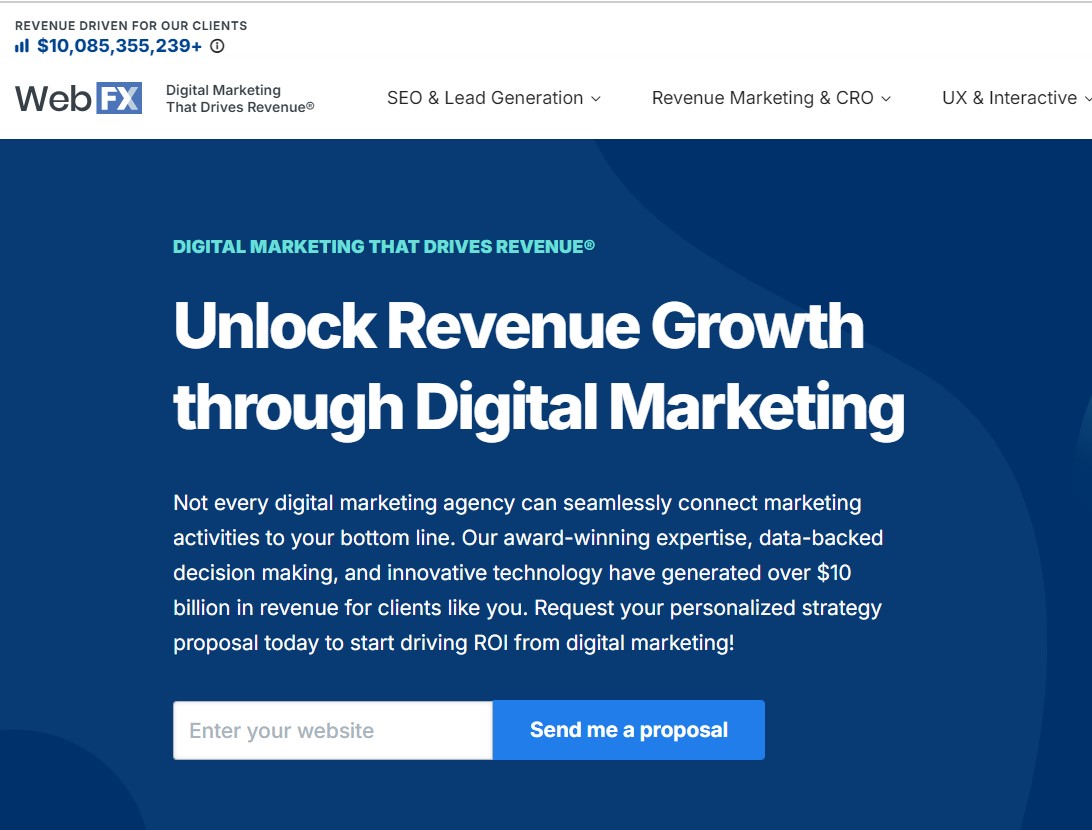
WebFX is a full-service digital marketing agency specializing in helping businesses grow through a wide range of online marketing services.
Their offerings include SEO (Search Engine Optimization), PPC (Pay-Per-Click) advertising, web design, and content marketing, among others.
One of their core focuses is lead generation, where they assist companies in attracting high-quality leads through targeted online strategies.
They can help you optimize your website for search engines, create engaging content, and run data-driven ad campaigns;
They also offer advanced analytics and tracking tools to measure campaign performance, ensuring that companies achieve a solid return on investment (ROI) in their lead generation efforts.
3. Grow & Convert – SEO and content marketing
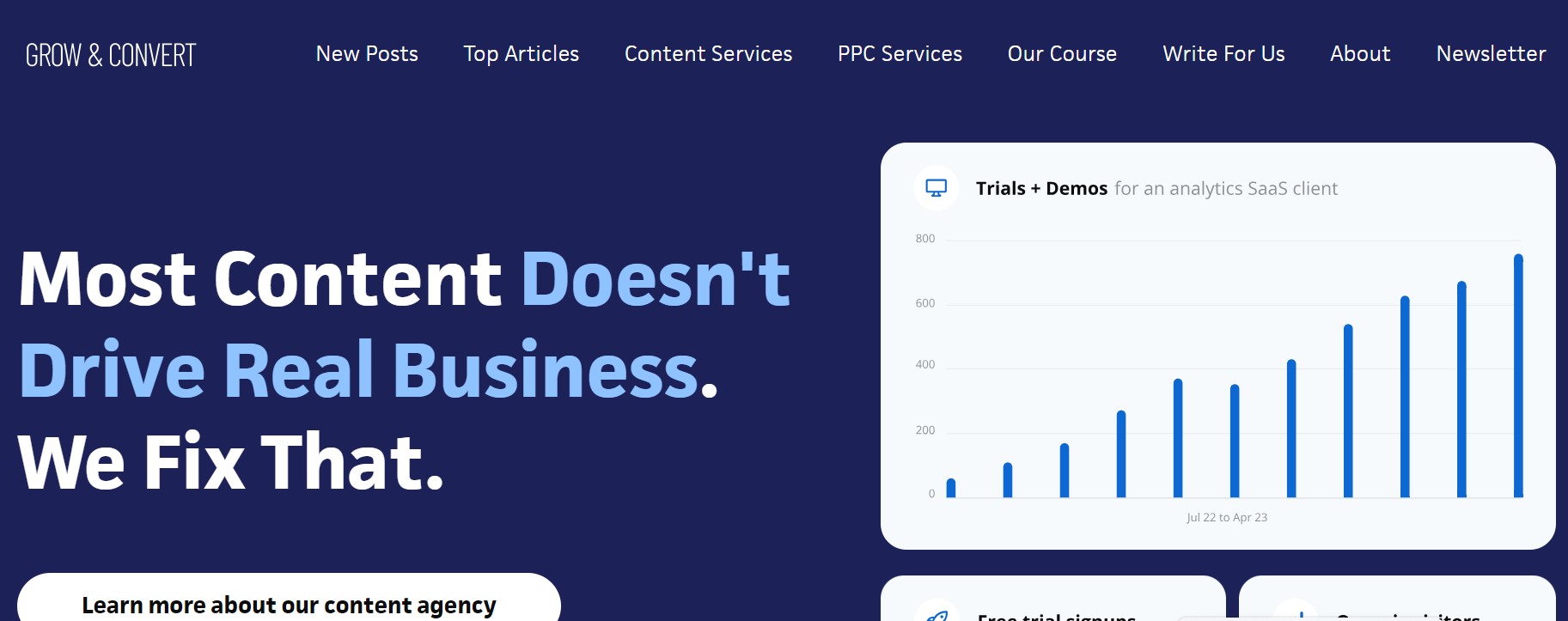
Grow and Convert is a content marketing agency founded by Benji Hyam and Devesh Khanal.
The company specializes in helping businesses generate leads through high-quality intent-based content and data-driven strategies.
They focus on creating informative blog posts that target specific buyer personas and search intent, aiming to attract potential customers who are more likely to convert.
Their approach to lead generation involves in-depth audience research, strategic content planning, SEO optimization, and content promotion through paid channels.
Grow and Convert has worked with various companies across industries, including B2B and SaaS companies, delivering measurable growth in organic traffic and leads. Their process emphasizes creating content that ranks well on search engines and resonates with the target audience, leading to higher engagement and conversions.
Need a tailored lead generation strategy?
Hop on a free 15-minute strategy session with Salesbread; we help businesses generate 1 lead per day through personalized, data-driven LinkedIn outreach.
